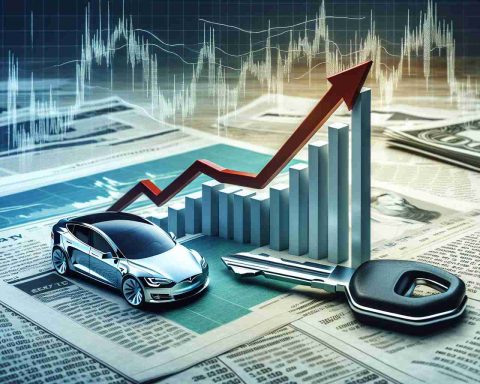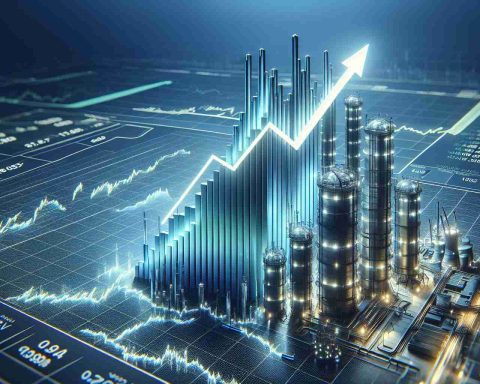In an era where technology is transforming every facet of our lives, the stock market is no exception. Artificial Intelligence (AI) is rapidly becoming the cornerstone of modern trading strategies, and its impact is revolutionizing how decisions are made on Wall Street and beyond.
AI-driven algorithms are now capable of analyzing vast amounts of data at unprecedented speeds, enabling traders to make more informed decisions in a fraction of the time it would take a human. These advanced systems can identify patterns, predict market trends, and execute trades with greater accuracy and efficiency. As a result, the playing field is shifting, making traditional methods seem almost archaic.
Moreover, AI is not limited to professional traders. With the rise of robo-advisors, even individual investors are harnessing the power of AI to manage their portfolios. These digital advisors use complex algorithms to offer personalized investment advice and automatically adjust portfolios in response to market changes, making investing more accessible and hands-off for everyone.
Looking to the future, the impact of AI on the stock market will likely continue to grow. We may see new regulations emerge as authorities address the ethical and operational challenges posed by AI in trading. The need for transparency and accountability will be paramount, ensuring that AI systems act in the best interest of investors.
As AI becomes integral to the fabric of financial markets, staying informed about these technological advancements is crucial. Are you prepared to navigate this new era of stock trading?
The AI Revolution in Stock Trading: A Dual-Edged Sword for the Environment and Humanity
Artificial Intelligence is rapidly transforming stock trading dynamics, ushering in a new era where decisions are executed with unprecedented speed and precision. While this revolution holds promise for economic efficiency and greater accessibility, it also unravels critical implications for the environment, humanity, and the global economy.
Impact on the Environment:
The environmental footprint of AI-driven stock trading centers around the immense computational power required to run these algorithms. Data centers, the backbone of AI technology, consume significant amounts of electricity, contributing to a carbon footprint that often goes unnoticed. As AI continues to dominate stock markets, the demand for larger, more powerful data centers escalates, further exacerbating energy consumption and greenhouse gas emissions. This technological shift underscores the urgent need for sustainable practices in energy generation and more efficient algorithms to minimize the environmental impact.
Impact on Humanity and the Economy:
On one hand, AI democratizes investing by enabling individual investors to access sophisticated trading tools, fostering financial inclusion and personal wealth growth. However, it also poses risks of economic disparity as it could marginalize investors who lack the technical knowledge or resources to leverage AI systems. The risk of over-reliance on AI is significant, potentially leading to market volatility if algorithms misinterpret signals or act upon false positives, echoing the need for regulatory oversight to ensure market stability.
Connections to the Future of Humanity:
As AI embeds itself deeper into the financial ecosystem, society must balance technological advancement with ethical considerations and equitable impacts. Addressing concerns of transparency and accountability is crucial; future developments may necessitate new regulatory frameworks to govern AI systems, safeguarding investor interests and market integrity. Moreover, responsibly harnessing AI’s power could lead to innovations that support sustainable development goals, guiding the financial sector toward environmentally friendly practices.
The trajectory of AI in stock trading will shape not only economic landscapes but also societal norms, challenging humanity to innovate responsibly while safeguarding the planet. In preparing for this future, stakeholders must collaborate to evolve technologies for a more sustainable and equitable world, ensuring that AI serves humanity’s best interests.
Unveiling the Future of Stock Trading: How AI is Reshaping the Market Landscape
The Rise of AI in Stock Trading: A Market Analysis
Artificial Intelligence is redefining the stock market, seamlessly integrating into trading strategies to provide unprecedented insights. As AI technology becomes more advanced, the difference it makes in trading decisions is increasingly notable. The usage of AI is no longer limited to elite traders on Wall Street; it has become an accessible tool for individual investors, revolutionizing the way investment portfolios are managed.
AI-Driven Trading: Features and Innovations
AI-powered trading systems excel in processing large volumes of data quickly and accurately. These algorithms are designed to decipher complex patterns and forecast potential market movements with precision, significantly surpassing human capabilities. The innovations in this sector don’t stop at speed and accuracy – AI systems now offer enhanced features such as real-time data analysis and virtual trading assistants, making the decision-making process more streamlined and efficient.
Pros and Cons of AI in Trading
Pros:
– Efficiency: AI algorithms can execute trades faster than humans.
– Accuracy: Reduces the margin for human error in predictions.
– Accessibility: Empowers individual investors through tools like robo-advisors.
Cons:
– Complexity: Understanding AI systems requires a significant learning curve.
– Regulation: Emerging technologies may lack comprehensive regulatory frameworks.
– Ethical Concerns: Questions about transparency and accountability in automated decisions.
The Evolution of Robo-Advisors
Robo-advisors present a unique application of AI in finance, offering tailored investment strategies with minimal human intervention. These digital platforms evaluate individual investment goals, risk tolerance, and other personal data to create diversified portfolios. As more individuals embrace this technology, the scope and functionality of robo-advisors continue to expand, making them an essential tool for both novice and experienced investors.
Regulatory Aspects and Future Predictions
With the increasing integration of AI in trading, regulatory bodies are likely to adapt by implementing specific guidelines to address ethical operations and transparency. This adaptation is crucial to ensure that AI systems protect investor interests and operate in a fair environment. Looking ahead, the continuous evolution of AI technology suggests an even greater influence on the stock market, potentially introducing more sophisticated tools and strategies that could reshape investment landscapes globally.
Conclusion: Staying Ahead in the AI-Driven Market
As AI becomes ingrained in financial market structures, staying informed about technological advancements and their implications is essential for investors and traders alike. The question remains: are you ready to embrace the AI revolution in stock trading and capitalize on its potential?
For more information, visit Bloomberg or The Wall Street Journal to stay updated on the latest trends in AI and stock trading.
















